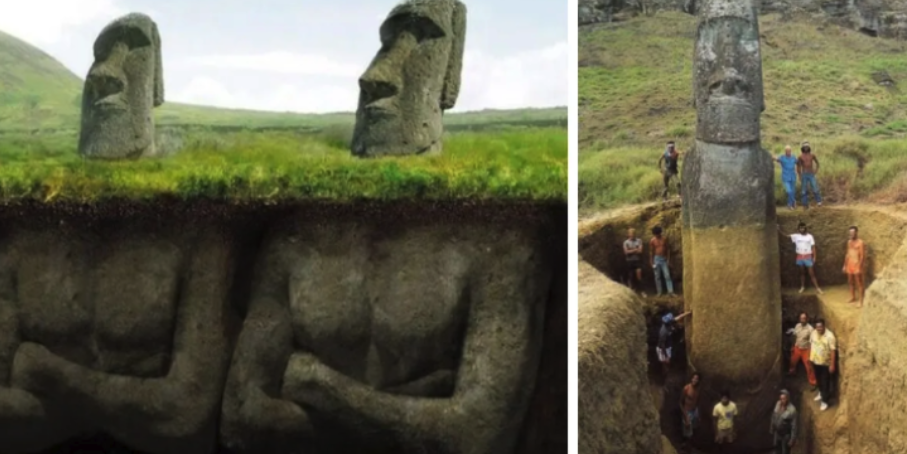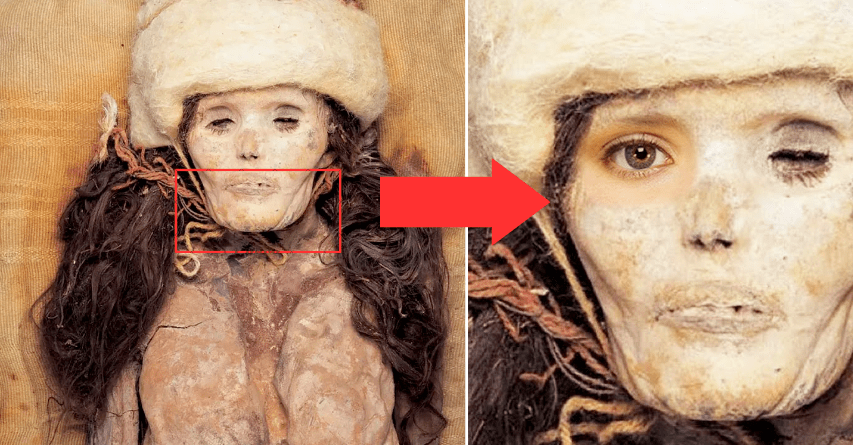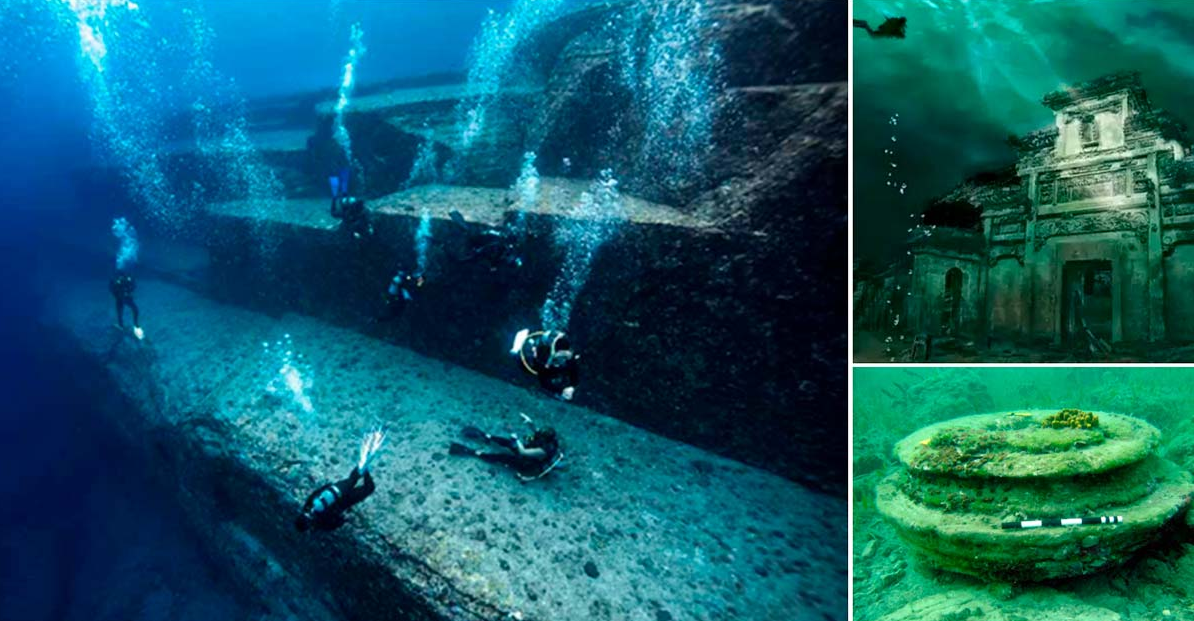
Amazing Discovery: Huge Roman City Under The Sea
Under the surface of our oceans, rivers and lakes there are more than mysterious mammals and strange sea creatures. Divers and explorers have rediscovered a surprising number of underwater cities that were long forgotten or had been written off as the stuff of legends.
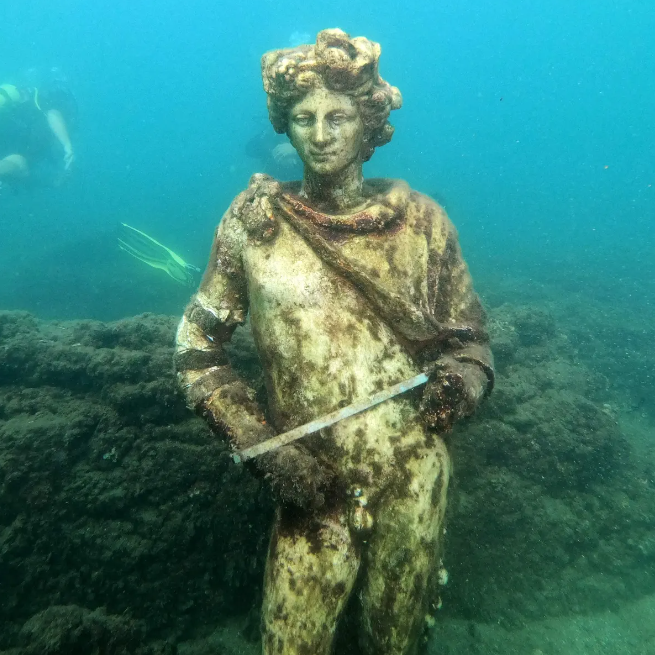
From breathtaking monuments and temples that have been submerged in lakes to entire villages standing under the sea, below are some of the most incredible lost cities that had been found in the hidden depths.
Baia does not really belong in the real world. It was known as a playground for the fabulously rich, a resort city reserved for the Roman elite including Julius Caesar, who had a villa there.
Baia has even been described as “the Las Vegas of the Roman Empire!
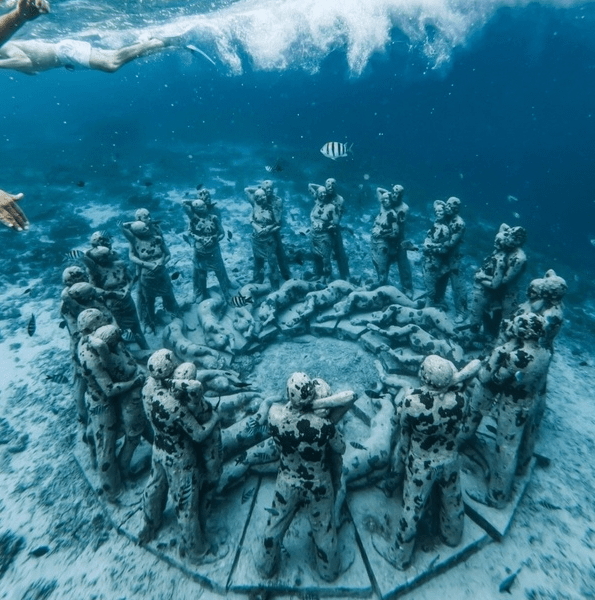
This was where the highest classes of the ancient Roman society came for parties and blowing off steam. Surviving statues now scatter the seabed. After a few decades from its discovery, it was eventually designated a protected marine area.
The remnants of this Neolithic village were rediscovered in 1984 beneath the Mediterranean Sea, a coastal town just south of Haifa, Israel. Believed to date from around 7000 BC, it’s one of the earliest sunken settlements to have been uncovered.
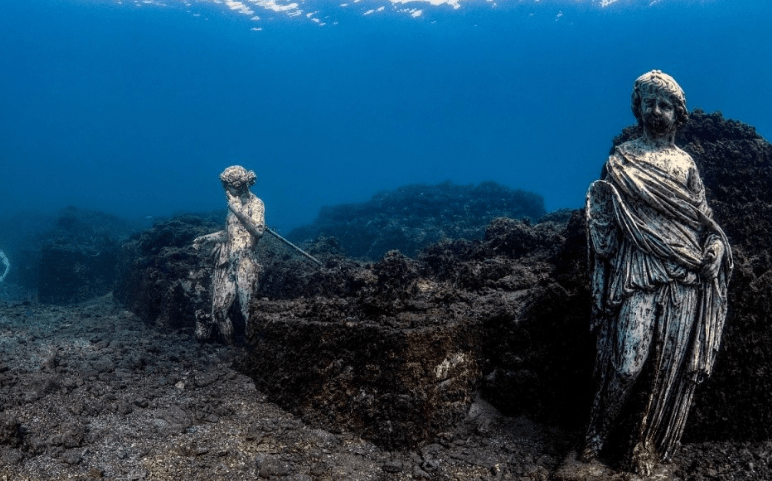
Pavlopetri, Greece
What at first glance might look like a lovely spot to go rock-pooling is, in fact, the edge of an ancient sunken city. Pavlopetri is the oldest known submerged city in the world, believed to date back around 5,000 years.
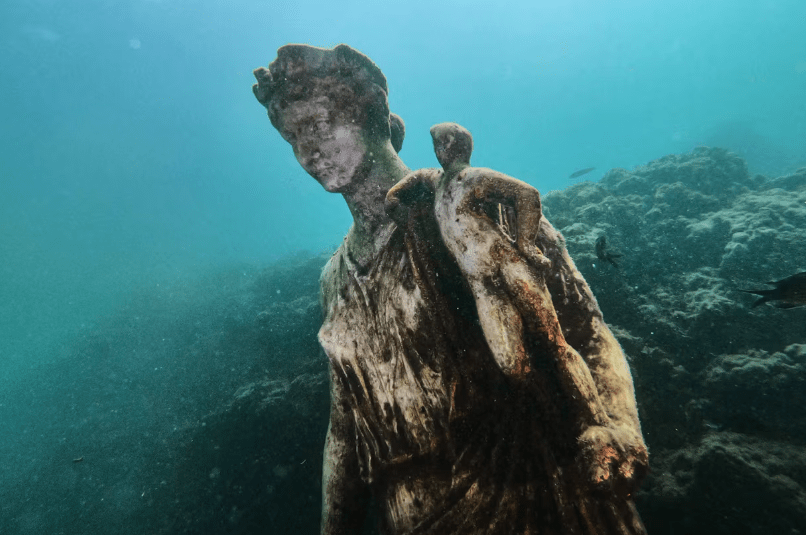
Between the East China Sea and the Pacific Ocean lies an enigma wrapped in mystery. A series of stone formations, from vertiginous monoliths to stacks of slabs and a pyramid, were spotted close to the remote Japanese island of Yonaguni in the mid-1980s by a local diver.
The ancient city of Olous was once home to around 40,000 people. Now it sleeps beneath the surface of the Aegean Sea. Its walls and foundations lie just off the northern coast of Crete, close to the village of Elounda, and are visible from the shore.
Simena was a sea-trading post and ancient Lycian settlement believed to date to around 2000 BC. Simena’s watery fate was sealed in the 2nd century when the city was hit by a series of earthquakes and eventually submerged.


